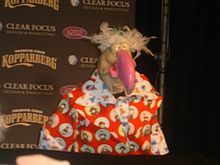Friends on the Warren-Wilson alumni lists were asking about various translations of the Divine Comedy. I like Robert Pinsky’s, but I also like Longfellow’s.
Longfellow’s version of Dante is the earliest done in America and some of the best and have a tragic story behind them — especially the Inferno. Not only that (another and would be excessive) but they helped form the argument for teaching modern languages in America’s universities.
First the circumstances of the translation.
In July 1861, Fanny Longfellow was filling envelopes with the baby curls of their six children when the candle she was using to melt sealing wax caught her dress on fire. Although HWW rushed to safe her, she went up in flames. HWW was too badly burned to attend her funeral. His face was too scarred and disfigured — so he grew his trademark beard to cover the injuries.
Completely depressed and almost unable to function, HWW decided to translate the Inferno as a way of rising out of the pain brought on by the fire. True, he had been working on translations of Dante’s work for many years, but he had not been satisfied enough with them to bring them to print. Also there is some indication that HWW had taken up laudium (opium) in his grief — whether this assisted in his translation efforts, I have not seen noticed.
HWW had pioneered the study of modern languages whilst at Harvard and used various international styles in his own poems to great effect — one famous example is Hiawatha which takes its form from the Finnish saga. But still the idea that modern language was part of high culture was under dispute. The publication of Longfellow’s Dante changed that. It was extremely popular and considered a required highbrow possession — even if not read.
His notes in the 1895 Fireside edition (the one I bought for 50 cents a decade or so ago) are good too.
Midway upon the journey of our life
I found myself within a forest dark,
For the straightforward pathway had been lost.
Ah me! how hard a thing it is to say
What was this forest savage, rough and stern,
Which in the very thought renews the fear.
So bitter is it, death is little more;
But of the good to treat, which there I found,
Speak will I of the other things I saw there.
On a personal note, I was delighted to no end when I began the classic computer game (text based) Adventure (aka Adventure Cave) and the first line began: “You are at the edge of a dark forest before you is a cave. Enter?” (yes/no)
Since writing this, I’ve been enjoying Matthew Pearl’s The Dante Club, a murder mystery set at the time and place of the Longfellow translations.










Recent Comments